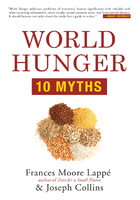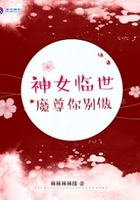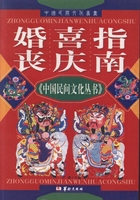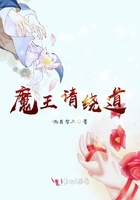Angrezi khana. The cook had thought of ham roll ejected from a can and fried in thick ruddy slices, of tuna fish soufflé, khari biscuit pie, and was sure that since his son was cooking English food, he had a higher position than if he were cooking Indian.
The police seemed intrigued by the first letter they had read and embarked on the others. To find what? Any sign of hanky panky? Money from the sale of guns? Or were they wondering about how to get to America themselves?
But although Biju's letters traced a string of jobs, they said more or less the same thing each time except for the name of the establishment he was working for. His repetition provided a coziness, and the cook's repetition of his son's repetition double-knit the coziness. "Excellent job," he told his acquaintances, "better even than the last." He imagined sofa TV bank account. Eventually Biju would make enough and the cook would retire. He would receive a daughter-in-law to serve him food, crick-crack his toes, grandchildren to swat like flies.
Time might have died in the house that sat on the mountain ledge, its lines grown indistinct with moss, its roof loaded with ferns, but with each letter, the cook trundled toward the future.
He wrote back carefully so his son would not think badly of his less educated father: "Just make sure you are saving money. Don't lend to anyone and be careful who you talk to. There are many people out there who will say one thing and do another. Liars and cheats. Remember also to take rest. Make sure you eat enough. Health is Wealth. Before you make any decisions talk them over with Nandu."
Nandu was another man from their village in the same city.
Once a coupon had arrived in the Cho Oyu post for a free National Geographic Inflatable Globe. Sai had filled it out and mailed it all the way to a P.O. box in Omaha, and when so much time had passed that they had forgotten about it, it arrived along with a certificate congratulating them for being adventure-loving members pushing the frontiers of human knowledge and daring for almost a full century. Sai and the cook had inflated the globe, attached it to the axis with the provided screws. Rarely was there something unexpected in the mail and never anything beautiful. They looked at the deserts, the mountains, the fresh spring colors of green and yellow, the snow at the poles; somewhere on this glorious orb was Biju. They searched out New York, and Sai attempted to explain to the cook why it was night there when it was day here, just as Sister Alice had demonstrated in St. Augustine's with an orange and a flashlight. The cook found it strange that India went first with the day, a funny back-to-front fact that didn't seem mirrored by any other circumstance involving the two nations.
Letters lay on the floor along with a few items of clothing; the worn mattress had been overturned, and the newspaper layers placed underneath to prevent the coils of the bed from piercing the meager mattress had been messily dispersed.
The police had exposed the cook's poverty, the fact that he was not looked after, that his dignity had no basis; they ruined the facade and threw it in his face.
Then policemen and their umbrellas—most black, one pink with flowers—retreated through the tangle of nightshade.
On his knees, the cook searched for the silver knob of the watch, but it had vanished.
"Well, they have to search everything," he said. "Naturally. How are they to know that I am innocent? Most of the time it is the servant that steals."
Sai felt embarrassed. She was rarely in the cook's hut, and when she did come searching for him and enter, he was ill at ease and so was she, something about their closeness being exposed in the end as fake, their friendship composed of shallow things conducted in a broken language, for she was an English-speaker and he was a Hindi-speaker. The brokenness made it easier never to go deep, never to enter into anything that required an intricate vocabulary, yet she always felt tender on seeing his crotchety face, on hearing him haggle in the market, felt pride that she lived with such a difficult man who nonetheless spoke to her with affection, calling her Babyji or Saibaby.
She had first met the cook when she had been delivered from St. Augustine's in Dehra Dun. Nine years ago now. The taxi had dropped her off and the moon had shone fluorescently enough to read the name of the house—Cho Oyu—as she had waited, a little stick figure at the gate, her smallness emphasizing the vastness of the landscape. A tin trunk was at her side. "Miss S. Mistry, St. Augustine's Convent." But the gate was locked. The driver rattled and shouted.
"Oi, koi hai? Khansama? Uth. Koi hai? Uth. Khansama?"
Kanchenjunga glowed macabre, trees stretched away on either side, trunks pale, leaves black, and beyond, between the pillars of the trees, a path led to the house.
It seemed a long while before they heard a whistle blowing and saw a lantern approaching, and there had come the cook, bandy-legged up the path, looking as leather-visaged, as weathered and soiled, as he did now, and as he would ten years later. A poverty stricken man growing into an ancient at fast-forward. Compressed childhood, lingering old age. A generation between him and the judge, but you wouldn't know it to look at them. There was age in his temperament, his kettle, his clothes, his kitchen, his voice, his face, in the undisturbed dirt, the undisturbed settled smell of a lifetime of cooking, smoke, and kerosene.
"How dare they behave this way to you," said Sai, trying to overcome the gap between them as they stood together surveying the mess the police had left in his hut.
"But what kind of investigation would it be, then?" the cook reasoned.
In their attempt to console his dignity in two different ways, they had merely highlighted its ruin.
They bent to collect his belongings, the cook careful to place the pages of the letters in the correct envelopes. One day he'd return them to Biju so his son would have a record of his journey and feel a sense of pride and achievement.















